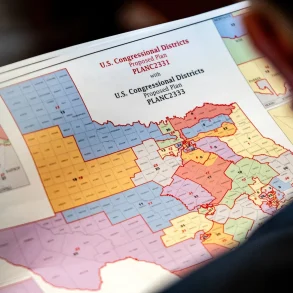On July 25, 2025, thousands of doctors in England’s National Health Service (NHS) walked off the job, launching a five-day strike over pay disputes. These resident doctors, who are early in their careers and vital to hospital and clinic operations, took to picket lines after negotiations with the government collapsed. The British Medical Association (BMA), the doctors’ union, claims that their members have faced a 20% real-terms pay cut since 2008, pushing them to demand a raise to match their critical role in healthcare.
Dr. Melissa Ryan and Dr. Ross Nieuwoudt, leaders of the BMA’s resident doctors committee, highlighted the severity of the issue: “Pay erosion has now got to the point where a doctor’s assistant can be paid up to 30% more than a resident doctor.” For these doctors, the strike isn’t just about money—it’s about fairness and the ability to keep serving patients effectively. Dr. Kelly Johnson, picketing outside St. Thomas’ Hospital in London, emphasized this point: “We’re here to help the public day in, day out, working grueling hours. We’re just trying to get what’s right for us so we can do our best to serve.”
The government, however, argues that doctors have already received a 28.9% pay increase as part of a deal to end previous strikes in 2023 and 2024. They’ve refused to offer more but are open to discussing better working conditions. Prime Minister Keir Starmer has publicly urged the doctors to return to work, warning in The Times that the strike will “cause real damage” to patients. He pointed to delayed treatments, missed diagnoses, and risks to long-term health as consequences of the walkout.
The NHS, already strained by a post-COVID-19 appointment backlog, faces further challenges with this strike. Emergency departments will remain open, and hospitals are working to maintain as many scheduled appointments as possible, but disruptions are inevitable. Previous strikes in 2023 and 2024 led to tens of thousands of postponed procedures, and this action threatens to deepen the backlog, leaving patients waiting longer for care.
The doctors’ struggle reflects broader tensions in England’s healthcare system. After years of rising living costs and stagnant wages, health workers feel undervalued despite their essential role. The Labour government, elected in July 2024, temporarily halted strikes with a pay raise, but the BMA’s recent strike vote shows that many doctors still feel their demands haven’t been fully met.
As picket lines form outside hospitals, the public is caught in the middle. Patients face delays, while doctors fight for fair compensation to sustain the NHS’s future. The standoff raises tough questions: How can the government balance fair pay for doctors with the urgent needs of patients? And how will the NHS recover from the strain of repeated strikes? For now, the resolution remains uncertain, but the determination of these doctors underscores their commitment to both their profession and the people they serve.








